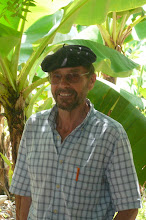Already 80 years ago Rudolf Steiner and Albert Howard, the pioneers of Biodynamic / Organic Agriculture foresaw the disastrous effects Industrial manufacturing approaches to agriculture would have.
11 years ago the World Food Summit issued the “Declaration of Rome” with urgent warnings and recommendations regarding the future food supply.
The powers in charge turned a blind eye at such warnings, because they called for uncomfortable attitude changes.
Since the times of Adam Smith a fundamentally flawed “Capitalistic” ideology has emerged, namely that “monetary profit” should be the primary goal of economic activity instead of providing the material necessities of man.
The socialists where aware of this and developed a equally flawed “communistic” ideology.
The underlying cause of such ideologies is the result of the limitations of materialistic thinking.
This approach resulted in a tremendous boost in industrially produced goods, however, when applied to non industrial goods such as agriculture, education and healthcare they had the disastrous results under which we suffer nowadays.
The industrial approach to farming with external inputs increased volume production, with a serious decline life-quality of foods produced, as well as the destruction of natural soil fertility.
On the social level; especially after the opening of the american West and the global trade with cheaply produced grains caused the decline of farm-prices in Europe forcing impoverished farmers of the land into the slavery of factory work and this phenomena is unabatedly continuing today.
The availability of cheap food for the urban centres has been a priority of all governments, and we can see today a global panic fearing food shortages and mass rioting.
I have no doubt that Biodynamic Agriculture can feed a much larger world population than we have now.
The obstacles however are enormous, we would have to change many of our habits, decrease our excess protein consumption (meat), desist of driving our cars with bio-fuels and most difficult of all, is to create incentives for people to stay or even return to farming.
In any case the times of cheap food are gone, it should never have been cheap to begin with, which would have avoided the suffering we are going to face now.
Subscribe to:
Post Comments (Atom)

No comments:
Post a Comment